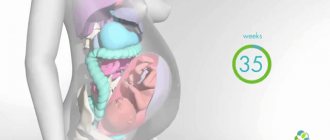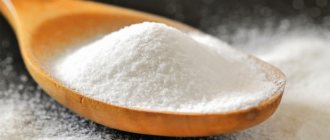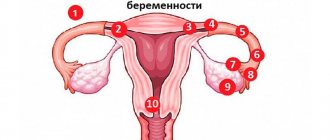Why does a woman vomit bile during pregnancy?
If a woman vomits bile during pregnancy and feels sick, in many situations this is a sign of early gestosis. Sometimes this condition occurs in late pregnancy, and this is fraught with premature birth (abdominal contractions negatively affect the uterus, causing spasms in it).
The reasons why such a symptom appears during pregnancy may lie in diseases of the digestive tract. This can also happen with a prolonged deficiency of food entering the body, when bile accumulates in the stomach and puts pressure on the epigastric region.
With a sudden increase in the amount of gastric juice, such a symptom also appears. In this case, you can cope with excess gastric secretions with the help of medications to alleviate the condition of the pregnant woman, which were prescribed by the doctor. With intense psycho-emotional stress, vomiting of green contents may also occur. But usually such an attack is isolated. Other causes include illness and food intoxication. Regardless of the cause, therapy should be carried out only after prior consultation with a specialist.
What to do if you have high acidity during pregnancy
Increased acidity of gastric juice causes a lot of discomfort to a person.
This pathology is accompanied by constant heartburn, painful sensations in the epigastric region and other manifestations. Hypersecretion of hydrochloric acid is common during pregnancy.
Treatment during pregnancy is complicated by the fact that most medications are contraindicated during this period.
Treatment should not be delayed, since increased acidity leads to various complications. How to deal with this phenomenon correctly so as not to harm your health and the health of your unborn child?
Etiology
Increased acidity during pregnancy is a common symptom. Heartburn, which develops as a result of hypersecretion of gastric juice, occurs in eighty percent of pregnant women.
As a rule, the concentration of acid increases in the gastric region during the second and third trimester. The duration of an attack, characterized by severe symptoms, can range from several minutes to several hours.
Uncontrolled use of antacid medications for heartburn can aggravate the situation, causing irreparable damage and harm to the fetus.
During the initial stages of pregnancy, major hormonal changes occur. They contribute to the normal, full development of the baby due to the consumption of nutrients from the mother’s body. At this time, various changes occur in the functioning of the woman’s gastrointestinal tract. Increased acidity during pregnancy is most often a consequence of the active functioning of hormones.
There is a special sphincter between the stomach and esophagus, which must close after the next portion of food arrives. In this way, the risk of food being thrown back is prevented.
During pregnancy, the level of progesterone in the blood increases noticeably, which helps relax the smooth muscles of the uterus and intestines. As a result, significant changes in peristalsis are observed. Peristalsis ensures the passage of food through the digestive tract.
With the restructuring of the endocrine system, the intestinal muscles are in a relaxed state, and the risk of developing constipation increases. When the sphincter located between the intestines and stomach relaxes, food is thrown into the esophagus. Hydrochloric acid acts as the main irritant of the mucous membrane, provoking an attack of heartburn in pregnant women.
Increased stomach acidity in later stages is due to an increase in the size of the uterus, which puts pressure on neighboring organs, as well as on the gastrointestinal tract. Discomfort occurs immediately after eating, regardless of the type of product.
Among the main factors contributing to increased production of hydrochloric acid and disruption of peristalsis in the gastrointestinal tract, the following should be noted:
- frequent large meals before going to bed;
- tight and tight clothing that compresses the intestines;
- medications intended to relax smooth muscles, namely muscle relaxants;
- consumption of food that increases acid production in the stomach.
To avoid harmful effects on the digestive tract, you should stop using antacids. In case of overdose, the level of hydrochloric acid concentration increases sharply. In addition to increased acidity, heartburn also occurs in pregnant women.
Treatment of pathology
If heartburn occurs frequently in pregnant women, it is important to take correct and safe measures. To do this, you need to consult a doctor and follow his recommendations.
First of all, you should adjust your diet. Follow a diet that prohibits pickled, canned and fatty foods.
Eat fractionally and in small portions, this will help reduce the volume of hydrochloric acid synthesis.
During the day, it is recommended to consume a small amount of fennel oil, which protects the gastric mucosa from irritation. Also include hazelnuts, almonds and oatmeal in your diet. It is advisable to avoid stress and lie on your back more often than on your side. To eliminate inflammation in the gastrointestinal tract, you need to drink potato juice or jelly.
Drug therapy is prescribed by a gastroenterologist or gynecologist. Medications are prescribed that can relax the sphincter. It is necessary to stop taking antispasmodics. Papaverine is mainly used to treat toxicosis. In this situation, the doctor selects another remedy to avoid complications and similar discomfort.
Diet therapy, which is aimed at inhibiting the synthesis of hydrochloric acid, deserves special attention. Fresh bread and pastries, sour berries, and fatty foods are prohibited. A woman's diet should consist of fresh vegetables and fruits.
The consumption of citrus fruits is limited, as they stimulate the production of gastric secretions. It is advisable to eat more dairy products: sour cream, cottage cheese, cream, butter. It is recommended to boil, stew or bake the meat.
You can also steam dishes.
During pregnancy, it is necessary to ensure that bowel movements occur every day. Food should not be allowed to accumulate in the gastrointestinal tract.
As for antacid medications, they should be prescribed by the attending physician. Basically, Phosphalugel and Smecta are used, which are taken once every three days.
Increased acidity is often observed during exacerbation of gastritis. In this case, a strict diet is required. It is advisable to eat at least six times a day. At the initial stage, milk diet therapy helps a lot, after which steamed fruits and vegetables are included in the diet. Then cheese, meat and various cereals are allowed.
Tea and coffee, smoked meats, confectionery and any spicy foods should be excluded from the diet. In case of exacerbation of the inflammatory process, it is recommended to drink medicinal mineral waters. Antispasmodics, prokinetics and antacids will help reduce acidity.
Prebiotics and enzymes are used to increase secretory activity.
If the acidity is low, herbal tinctures, decoctions based on cumin, fennel, wormwood, thyme, plantain, and parsley are recommended. The following medicinal plants help with high acidity:
- bird knotweed;
- chamomile;
- mint;
- St. John's wort;
- oats;
- flax seeds.
Before using traditional medicine, it is necessary to consult with your doctor, since self-medication can significantly harm the condition and aggravate the situation, causing the opposite effect.
If during pregnancy you suffer from increased acidity, heartburn, heaviness and abdominal pain, you need to visit a doctor and consult. All products aimed at normalizing acidity must be prescribed by a doctor.
Source: https://VashZhkt.com/simptomy/kislotnost-pri-beremennosti.html
Hungry stomach
In the morning or during the day, an attack may occur if food does not enter the stomach for a long time. If there are too many breaks between meals, the body suffers. When food is absent from the stomach and acid continues to be produced, the smooth muscles of the abdominal cavity begin to contract. Secretion enters the stomach cavity, causing vomiting along with juice.
More often, this condition is observed in the mornings in the first trimester of pregnancy. During pregnancy in the second trimester, this condition usually ends on its own and does not require special treatment. It is recommended to avoid long breaks between meals; meals should be divided - often, but little by little.
Vomiting of acid and bile (alcohol and food poisoning) - causes and treatment methods
Category: Food poisoning
Vomiting acid signals the occurrence of diseases of the gastrointestinal tract. Occurs rarely or regularly. When contacting a gastroenterologist, pathologies such as ulcers and gastritis are identified, but the formation of other diseases is possible.
Causes of vomiting
Acid vomiting occurs for a variety of reasons. Popular ones include: infections, gastritis, gastric and duodenal ulcers, narrowing of the pyloric lumen and Zollinger-Ellison syndrome (pancreatic tumor).
These diseases are accompanied by a strong secretion of gastric juice, which causes the urge to vomit, which comes out along with the vomit. Experts identify causes that are not related to the development of gastrointestinal pathologies.
Other reasons:
- traumatic brain injury;
- concussion and cerebral stroke.
Excessive consumption of alcoholic beverages and overeating leads to vomiting, which does not require special treatment. In case of brain diseases, the patient must be urgently hospitalized.
Vomiting due to ulcer
An ulcer appears on the walls of the stomach or in the duodenum. Under normal conditions, the human stomach is protected by a mucous substance that coats the walls of the organ and prevents close contact with the organ's secretions.
With improper nutrition, the mucous membrane of the organ is destroyed. The walls become vulnerable to the acid produced. In places where the mucous layer is smaller, an ulcer appears, causing vomiting of hydrochloric acid along with the remains of undigested food.
This happens after a meal. The painful sensation lasts for a long time. High acidity of the stomach can provoke pathology.
Vomiting with gastritis
The presence of bile in the vomit indicates improper functioning of the pylorus and bile entering the stomach. Due to the spasm, an obstruction appears that prevents food from passing normally through the gastrointestinal tract. Consequently, food mixed with gastric juice and bile comes out, leading to bitter vomiting. Pathology appears due to the presence of diseases of the gastrointestinal tract, poisoning or infections.
With chronic gastritis with increased secretion of gastric juice, severe heartburn, vomiting, and severe pain appear. The disease manifests itself at night when there is no food in the digestive organs. After the vomit is released, the patient experiences slight relief, but the symptoms reappear.
For infectious diseases
A common cause of sour vomiting is the formation of a food infection that develops due to the penetration of pathogenic microorganisms. Symptoms of caused intoxication appear rapidly: attacks of nausea, vomiting with sour contents, chills, fever, diarrhea.
Appears due to the release of excessive amounts of mucus to eliminate pathogenic microflora, which disrupts the stable functioning of the organ. This leads to excessive secretion of gastric secretions, increasing the acidity of the organ.
Vomiting during pregnancy
Acid vomiting during pregnancy can occur in early and late stages. The main reason is hormonal imbalance and active secretion of gastric juice.
Pathology manifests itself when the diet is disturbed, when there are long periods of lack of food.
When hungry, the walls of the stomach contract, producing hydrochloric acid, which becomes a sign of nausea and vomiting.
During pregnancy, a woman's organs are subjected to severe stress, which leads to their dysfunction. If you have liver disease, you may experience dark brown vomiting, the whites of your eyes and skin become yellowish, and discomfort appears in the abdominal area. Acid vomiting during pregnancy can occur with appendicitis, severe heartburn, and duodenostasis.
Diagnostics
Before prescribing drug therapy, the doctor must identify the cause of vomiting. The gastrointestinal system is diagnosed first.
Examination methods:
- ultrasound examination of the digestive organs;
- X-ray of the stomach;
- gastroscopy;
- blood and urine tests;
- magnetic resonance and computed tomography in special cases.
After diagnosis, treatment is prescribed. To improve the condition, sometimes it is enough to follow the correct regimen and therapeutic nutrition.
Treatment methods for vomiting
What should you do first with a sick person? If acid vomiting occurs, the patient must be placed in a horizontal position. The place where the patient is located should be comfortable and spacious so that the person can turn over at the right time.
Place a container for vomit nearby. If the patient is very weak, it is necessary to turn him on his side to prevent choking on vomit.
After an attack, give warm liquid and rinse the mouth. It is allowed to replace boiled water with disinfectants: a weak solution of potassium permanganate or baking soda. To prevent the gag reflex, it is recommended that the patient put 2-3 drops of mint drops on the tongue or give an ice cube.
Medicines
Depending on the cause of acid vomiting, the doctor chooses medications to relieve unpleasant symptoms. In case of infectious pathologies or overdose, sorbents are used that quickly remove the remaining toxins from the body.
Popular means:
- Polysorb. The drug is diluted in warm water and taken throughout the day, dividing the dose for an adult or a child into 4-5 doses 60 minutes before meals. For adults, the daily dosage of the drug is up to 20 grams, for children up to 8-10 grams.
- Enterodesis. Dilute 5 grams of the drug in ½ glass of water. Take 2 hours before meals three times a day.
- Activated carbon is used based on the patient's weight. For 10 kg, take 1 tablet with a dosage of 250 mg.
- Enterosgel. Dilute 22 grams of gel in 100 ml of warm, boiled water. Drink 1 hour before meals. The drink is taken up to 3 times a day.
You will like the article: “ Pills for nausea and vomiting for children in case of poisoning .”
To normalize the water-salt balance in the body, saline solution is used, which is administered intravenously. To relieve pain, use the painkiller Papaverine tablets. Almagel and Vikalin will help reduce acidity.
What to eat and what to exclude
In addition to treatment, doctors prescribe therapeutic (dietary) nutrition. Be sure to remove spicy, salty, sour, pickled and sweet foods from your usual diet. Fried foods, smoked foods and fatty foods are also prohibited.
Principles of dietary nutrition:
- heat treatment of food - steam, cooking, stewing (without oil);
- Allowed vegetables are potatoes, cucumbers, cabbage. Legumes are prohibited;
- Among the dishes you can eat liquid porridges, soups, chicken, omelettes, casseroles;
- what is allowed to drink: freshly squeezed juice from sweet fruits, herbal teas, casseroles and homemade yogurt;
- You should not eat fresh bread. Dried or stale is allowed.
Food should be warm. Portions of 200 grams, but every three hours. Coffee and alcoholic beverages are also prohibited from being included in the diet. Sometimes after drinking alcohol a person experiences an attack and a deterioration in his general condition.
Consequences and prevention
In the process of regular vomiting, there is a loss of moisture in the body, with which useful substances are released, which leads to an imbalance in vitamin balance. The inability to eat food leads to exhaustion of the body.
Negative consequences include an increased risk of damage to the walls of the digestive system. The described reactions of the body can lead to death or impaired functioning of internal organs.
In order to prevent the occurrence of consequences, it is recommended to promptly consult doctors for help, as well as organize proper nutrition. Be sure to follow the rules of personal hygiene and carefully process vegetables and fruits before consumption. Pay attention to the appearance, taste, smell and expiration date of products.
Toxicosis and vomiting of bile
Toxicosis in the early stages of the gestational period is normal. This is a signal that the expectant mother’s body is adapting to bearing a fetus. During early pregnancy, it is important to prevent dehydration. The norm is morning and daytime vomiting, which does not exceed five times. In this case, no special treatment is required. Here you just need to wait out this period, easing your condition during the first trimester.
If attacks are too frequent and are accompanied by other unpleasant symptoms, this may indicate the development of certain diseases or problems. This can lead to dehydration if you vomit too often and too much. Therefore, it is recommended to consult a doctor as early as possible. In this case, treatment in a hospital setting is indicated to maintain the pregnancy.
What causes bilious vomiting during pregnancy?
Even before pregnancy, a woman may encounter a situation where the acidity in the stomach exceeds the norm. After conception, the entire body of the expectant mother begins to gradually undergo restructuring, which leads to an exacerbation of existing health problems. In particular, diseases of the gastrointestinal tract are activated.
Vomiting with bile during pregnancy can also occur as a result of hormonal changes. The body does not immediately adapt to new realities.
Hormonal changes affect the emotionality of women. As pregnant women become more sensitive, they are prone to stress. Experiences cause muscle spasms. The bile duct also contracts. The contents of the organ are thrown into the stomach.
Vomiting due to fetal pressure on internal organs
This usually happens in the 3rd trimester of pregnancy, when the baby is almost formed. Even those women who were not tormented by toxicosis in the early stages vomit bile during pregnancy during this period.
The grown fetus begins to put pressure on the mother’s internal organs. The baby moves in the womb. The space to change positions is becoming less and less. The baby affects the organs of the digestive system, in particular the liver and gall bladder. The reaction of the expectant mother’s body is vomiting, accompanied by heartburn.
Vomiting mixed with bile can begin in women:
- aged less than 18 or more than 35 years;
- during multiple pregnancy;
- with diseases of the endocrine system;
- with pathologies of the gastrointestinal tract;
- experiencing depression and stress.
Whatever the cause of vomiting, during pregnancy the phenomenon requires urgent medical attention.
Vomiting due to cholecystitis
With cholecystitis, the gallbladder becomes inflamed, which leads to various complications. Provoke an infection. They provoke stagnation of bile. A pregnant woman begins to experience attacks of acute cholecystitis. Usually the cause of the development of pathology is a change in hormonal levels. During restructuring, the body is vulnerable to infections.
Vomiting of bile during pregnancy in the morning is accompanied by the following symptoms:
- Pain from the right hypochondrium.
- Heaviness in the stomach.
- Bitterness in the mouth.
- Heartburn.
When the fetus moves, the pain may intensify. Over time, vomiting appears not only in the morning and on an empty stomach, but also after eating fried and fatty foods.
Looking for an answer to the question of why they vomit bile during pregnancy, women often attribute the illness to toxicosis. However, with the latter, cramps occur only on an empty stomach. With cholecystitis, vomiting is possible even after a meal.
Pregnant women with diagnosed cholecystitis must adhere to a therapeutic diet and take choleretic drugs. Medicines are prescribed by a doctor. Timely treatment will relieve the symptoms of the disease and prevent the development of fetal pathologies.
Vomiting due to pancreatitis
During pregnancy, the uterus enlarges and puts pressure on the pancreas. This leads to the development of pancreatitis. Inflammation of the pancreas can also be triggered by food that a woman begins to eat frequently. Many pregnant women crave pickles, smoked meats, and sweets. Such food is harmful to the body. The risk of developing pancreatitis also increases with frequent overeating.
The main causes of exacerbation of the chronic form of the disease include:
- lack of physical activity;
- non-compliance with the diet for pregnant women;
- development of diseases of the hepatobiliary system;
- pathologies of the stomach and intestines;
- some medications;
- lack of protein.
Inflammation of the pancreas is accompanied not only by the fact that bile vomits during pregnancy. The stool acquires a pungent odor and becomes greasy. The woman begins to feel pain in the left side area.
Doctors for pancreatitis in pregnant women usually prescribe a special diet with a low percentage of fat and an increased proportion of protein products. Additionally, probiotics, prebiotics, enzymes, and antispasmodics are prescribed. They try to prescribe products on a natural basis.
Vomiting due to liver disease
In pregnant women, vomiting of bile may begin due to a malfunction of the liver. Problems are caused by excessive stress on the organ. Changes in habitual metabolic processes also play a role. Vomiting begins immediately after eating fatty foods.
With liver pathologies, a pregnant woman may experience:
- yellowness of the skin;
- stool discoloration;
- urine becomes dark;
- malaise and weakness.
Vomiting due to reflux gastritis
During pregnancy, chronic diseases worsen, including reflux gastritis. Bile enters the stomach due to improper functioning of the muscular sphincter at the exit from the organ. Liver secretions irritate and corrode mucous membranes. This provokes severe vomiting. The body is trying to get rid of the acid in the stomach.
Pregnant women have become accustomed to the idea that discomfort during pregnancy is the norm. Therefore, expectant mothers often confuse gastritis with the onset of toxicosis.
In addition to vomiting, the following appear:
The symptoms of gastritis interfere with proper rest, which can affect the development of the fetus.
Vomiting due to peptic ulcer
During pregnancy, vomiting of bile and blood may occur. This is an exacerbation of peptic ulcer disease. It occurs due to the activation of the production of hormones that help reduce stomach acidity. His environment begins to cope worse with the breakdown of spicy, fried, fatty and salty foods. The disease worsens, which leads to profuse vomiting mixed with blood and bile.
Pancreatitis
The signs of pancreatitis are very similar to toxicosis. Therefore, you need to be very careful about your health, paying attention to all changes in it. This disease can develop during pregnancy. The main cause of this disease is considered to be compression of the pancreas, which occurs due to an increase in the size of the uterus. Poor nutrition can also cause exacerbation of pancreatitis, which is accompanied by nausea.
During this period, pancreatitis of chronic origin may worsen in women; predisposing conditions for this may be:
- lack of physical activity,
- unhealthy diet
- liver or gallbladder disease,
- pathological effects of estrogen,
- use of certain medications,
- acute deficiency of protein structures.
In addition to attacks of nausea and vomiting, pancreatitis is accompanied by indigestion, severe pain, and dyspeptic symptoms in the stomach.
What to do? For many women, it is recommended to follow a diet, limit lipid structures in the diet, and increase the intake of protein in the body. You cannot take any medications on your own. Treatment consists of using probiotics, prebiotics, enzymes, and antispasmodics prescribed by the doctor.
Pancreatitis and pregnancy
The disease may occur for the first time during pregnancy; the cause is compression of the pancreas by the enlarging uterus. A woman’s various addictions, for example, eating pickles and overeating, contribute to the development of the disease.
During pregnancy, chronic pancreatitis can also worsen, and provoking factors can be:
- Insufficient physical activity;
- Diet violation;
- Diseases of the hepatobiliary system;
- Pathological influence of estrogens;
- Impaired motility of the stomach and intestines;
- Taking medications;
- Lack of protein in food.
In addition to nausea and vomiting of bile, inflammation of the pancreas causes foul-smelling stool mixed with fat, girdle pain in the left half of the abdomen, and discomfort in the intestines.
What to do in this case? Many women benefit from a low-fat diet with more protein. You should not abuse medications. Taking probiotics and prebiotics, enzymatic preparations, antispasmodics will help cope with pathology during pregnancy. Definitely, treatment should be prescribed by a doctor.
Cholecystitis
Attacks of acute cholecystitis can also be accompanied by similar symptoms. Cholecystitis and pregnancy are closely related. The inflammatory process in the gallbladder is complemented not only by painful sensations, but also by vomiting with bile. It is important not to confuse such signs with toxicosis.
But such phenomena differ from toxicosis in that they do not appear on an empty stomach, but after eating food. Fatty, spicy and fried foods can provoke an exacerbation of the disease. Also, attacks are accompanied by pain and discomfort.
Treatment should be prescribed only by a specialist, using drugs prescribed by a gastroenterologist. They must be legal and safe while waiting for the baby.
Treatment of vomiting with bile
How to stop vomiting bile? It is very important to first determine the reason that caused this phenomenon. With a single attack of vomiting without subsequent relapses, not accompanied by other symptoms, no special treatment is needed. Diet and adequate fluid intake are recommended. Otherwise, you should consult a doctor who will prescribe the necessary tests and examinations and, based on their results, will be able to make a diagnosis and select treatment. If vomiting is a consequence of pathologies of the gastrointestinal tract, then its elimination is possible only if the underlying disease is cured. In certain cases, your doctor may prescribe special antiemetic medications.
If the body is intoxicated with alcohol or other substances, it is necessary to perform gastric lavage if vomiting of bile occurs. What should I do for this? A person is given to drink about 2 liters of warm water at a time while sitting, and then he should independently induce a gag reflex. In the future, after cleansing the stomach, to prevent dehydration, you should drink small portions of still mineral water (5–20 ml each) every 15 minutes. To speed up the removal of toxins from the body, sorbents and a strict diet are prescribed.
Important: In case of myocardial infarction, high blood pressure, cholelithiasis, gastritis or peptic ulcer, gastric lavage is contraindicated.
After an attack of vomiting, the patient is advised to rest and take a special diet. The duration of compliance with this regimen is determined by the doctor. The diet consists of completely avoiding fatty, spicy and fried foods, smoked foods, pickles, caffeine, and carbonated drinks.
When the first vomiting occurs during pregnancy, the woman is happy because she receives confirmation that she has conceived, but in the future, daily nausea can be so exhausting that there is no time for joy. Why does expectant mothers vomit and how can they alleviate their suffering? Are nausea and vomiting during pregnancy always normal, or can such symptoms be dangerous?

Video
Histosis (toxicosis) of pregnant women. How to easily endure or get rid of unpleasant symptoms.
Vomiting with bile during early pregnancy is one of the most unpleasant phenomena that significantly worsens the condition of the expectant mother. Experts say that vomiting bile during pregnancy is a kind of protective mechanism that helps identify pathologies of internal organs or suspect functional malfunctions of the body. But in order to understand what provokes such a reflex, a lot of research is often required, since there are many reasons and ailments against which vomiting of bile occurs during pregnancy.
Treatment process
Treatment of bile vomiting during pregnancy occurs with the help of a specialist. You should not restrain the urge to vomit if you have one, but it is not recommended to induce it on purpose. In case of repeated bouts of vomiting, be sure to consult a doctor, because this may be the first sign of any illness. For example, problems in the gastrointestinal tract. So don’t delay and go to the hospital and get examined.
Vomit may be green or yellow. With such disorders, a person’s intestines become blocked, and food does not pass further through the gastrointestinal tract. Therefore, all that remains is to vomit the contents out to empty the stomach of digested food.
Causes of the phenomenon
As a rule, pregnant women vomit in the morning due to a long break in food. In such circumstances, gastric juice continues to be synthesized, and this provokes a spasm of the smooth muscles of the organs. As a result, bile from its natural capacity enters the stomach and leaves the body along with gastric juice. This is one of the main signs of such a phenomenon as toxicosis. Pregnant women should develop an algorithm indicating what to do in such a case. Often it is enough to simply reduce the intervals between meals to eliminate the phenomenon.
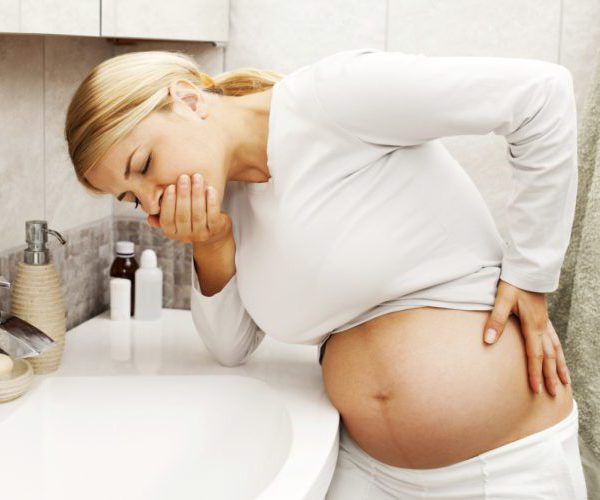
But when vomiting bile during pregnancy, this may also indicate an exacerbation of cholecystitis. During a relapse of the disease, the woman also feels sick and vomits, but she often mistakes these symptoms for manifestations of toxicosis. The main difference between this phenomenon is that symptoms are observed after eating.
If nausea is accompanied by discomfort in the right side, you should consult a gastroenterologist.
Morning sickness may also indicate pancreatitis. Often the disease appears for the first time during pregnancy. The cause of the disease is compression of the pancreas by the constantly increasing volume of the uterus. But a woman’s harmful habits, for example, overeating or excess salty foods in the diet, can lead to the development of pathology. In addition, unpleasant symptoms may indicate an exacerbation of chronic pancreatitis. What a woman should do in this case is obvious. You need to switch to a high-protein diet with limited lipids and be sure to visit a doctor.
In addition, while waiting for a child, the load on the liver increases, which leads to an exacerbation of chronic pathologies. But during pregnancy, nausea and vomiting can signal viral hepatitis. If this is the cause of the phenomenon, then other symptoms also appear: yellowness of the skin and eye whites, discoloration of feces against the background of intense coloration of urine. Sometimes toxicosis is a trigger for liver problems. Thus, during pregnancy in the second trimester and later, even necrosis of hepatocytes is possible. Therefore, if you suspect liver pathology, you should immediately seek help.
There may be other reasons why vomiting with bile occurs. It may appear against the background of the following conditions:
- intestinal infection;
- worms;
- inflamed appendix;
- increased acidity;
- duodenal stenosis.
In such circumstances, a woman should trust specialists. But vomiting blood during pregnancy should be especially alarming. When traces of fresh blood are observed, this often indicates damage to the esophagus or upper part of the stomach. If brown vomit is observed, then there is reason to suspect the presence of an ulcer, erosive gastritis or cirrhosis of the liver.
Liver diseases
While waiting for a baby, the load on the organ increases due to changes in metabolism, the neutralizing function of the liver also decreases, and chronic pathology often worsens. The cause of vomiting can be viral hepatitis, while in the acute period there is a icteric coloration of the skin and sclera, intense coloration of urine and the appearance of colorless feces. Vomiting bile in the presence of these symptoms and general weakness, asthenia may indicate liver disease.
Sometimes toxicosis is a trigger for the development of pathology: in the later stages of severe pregnancy can contribute to necrosis of liver cells. In any case, if you suspect liver disease, you should immediately seek help from a doctor.
Other causes of bile vomiting:
- Inflammation of the appendix;
- Stenosis (narrowing) of the duodenum, whereby food cannot move further through the intestines;
- Worm infestation;
- Increased acidity of gastric juice, often vomiting bile appears after a heavy meal or after eating fatty foods;
- An intestinal infection is accompanied by abdominal pain, hyperthermia, vomiting and diarrhea.
Eating low-quality food leads to illness, so a pregnant woman should be especially careful about her menu.
How to avoid vomiting bile
When vomiting is caused by typical toxicosis, it can be easily prevented using the following methods:
- if the urge appears from the aromas of food, you need to turn on the hood to maximum or open the window;
- when this trick does not work, it is worth temporarily entrusting the cooking to someone else;
- if there is a strong reaction to food odors, the food is consumed warm, which dulls the aroma;
- To prevent a woman from vomiting, at the first signs of oncoming nausea, it is advised to smell lemon or ginger;
- you need to rest more during the day, as the urge to vomit increases with fatigue;
- upon waking up, without getting out of bed, you need to eat a slice of bread or a couple of cookies;
- drink more water (drink it in small sips);
- you should eat more often, but with smaller portion sizes;
- you need to walk more and avoid the heat.
Treatment of nausea and vomiting
Any ailment in expectant mothers requires a proper examination, therefore, during a routine examination, a woman is obliged to tell the gynecologist everything without concealment. Only a specialist should decide whether to admit the patient to the hospital or not. Particular attention is paid if vomiting occurs at 38 weeks of pregnancy, since this can be not only late toxicosis, but also early labor.

Attention! There are no anti-nausea medications for pregnant women. You cannot self-medicate and take pills without a prescription. You can seriously harm the fetus.
All expectant mothers should think only about good things, and you can try to eliminate nausea using a few rules:
- Frequent walks relieve the condition.
- If you can’t walk a lot, ventilate your home more often.
- Nausea only happens on an empty stomach, so breakfast is a must.
- After breakfast you need to lie down and have a great breakfast in bed.
- You need to listen to your own body and eat whatever you want.
- Avoid fried and fatty foods.
- Let meals become fractional, but frequent.
- Drink more fluids unless directed by your doctor.
- If nausea occurs, always limit movement.
Let's remember folk recipes. A good remedy for nausea in pregnant women is all sour and salty foods. Carry with you apples, water with lemon, chamomile infusion, dried fruits and other foods like pickles and sauerkraut. It is important to understand that the urge to vomit will not accompany the entire pregnancy and everything will get better over time. Be more positive and stay healthy!
When to rush to the doctor
If vomiting appears on an empty stomach, then with a high degree of probability toxicosis makes itself felt, and there is no reason for concern. Experts say that only 7-9% of pregnant women with similar symptoms may need medical help. But there are signs that should alert you and serve as a signal to call an emergency ambulance:
- unquenchable thirst;
- heat;
- sudden weight loss;
- frequent ailments, diarrhea;
- decreased blood pressure, loss of consciousness;
- detection of blood in vomit;
- dry mouth, as well as other mucous membranes and skin;
- reduction in the amount of urine, its coloration in darker colors.

In addition, vomiting in late pregnancy (preeclampsia) is a clear cause for concern. This pathology is dangerous not only for the fetus, but also for the expectant mother, and its treatment is carried out strictly in a hospital.
Features in later stages
Vomiting in the later stages occurs much less frequently, but can resume by the 38th week, when pregnancy comes to an end, labor approaches, and vomiting reappears.
The main cause of pathology at 36 weeks of pregnancy is an increase in the size of the uterus, which begins to put strong pressure on internal organs, including the stomach. This is why vomiting during pregnancy can be caused by banal overeating.
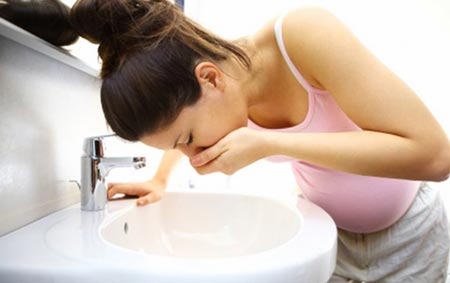
Oxygen starvation
Late toxicosis poses a great danger. It occurs due to the inability of the expectant mother’s body to provide all the needs of the growing baby, which leads to oxygen starvation.
This pathology causes some dangers:
- development of seizures that pose a threat to the life of mother and baby;
- vomiting blood during pregnancy;
- swelling;
- increased blood pressure;
- headache;
- sharp pain in the stomach;
- visual disturbances;
- sleep disorders.
Typically, vomiting occurs around the 39th week of pregnancy. The exact cause of this disease cannot be determined. But there are a number of factors that have a direct impact on the occurrence of vomiting in the second trimester of pregnancy - high blood pressure and weakened immunity.
Also find out about thick discharge during pregnancy and types of fetal movements during pregnancy.
Drug treatment for vomiting
Most expectant mothers strive to avoid taking medications while pregnant, but changes in diet and lifestyle are not always effective. In simple cases, vomiting can be stopped by washing the stomach with 2 liters of warm water. Next, after 10-15 minutes, the woman should drink mineral water or an infusion of chamomile or rosehip in tiny sips. If a pregnant woman is sure that her vomiting is caused by poisoning, then after gastric lavage it is necessary to take activated charcoal, based on the scheme: 1 tablet for every 10 kg of the woman’s weight.
But when the number of vomiting attacks exceeds 10 times a day, the pregnant woman’s body is dehydrated, and there is a decrease in its weight by more than 5% of the woman’s weight before pregnancy, then in such circumstances there is reason to suspect a severe degree of toxicosis (hyperemesis gravidarum). In such situations, doctors are forced to resort to drug treatment, which is primarily aimed at restoring the water balance in the body of the expectant mother. But often medications are also prescribed to prevent vomiting attacks.
The support of relatives and the absence of negative emotions are extremely important for a pregnant woman.
In addition to medications, in this case it is a good idea to influence acupuncture centers through massage. Taking vitamin B6 will also help. In addition, a woman should not worry prematurely about the feeling of bitterness in her mouth after vomiting. This is a fairly common phenomenon when carrying a baby, as the female body tries to adapt to a new state for it. Using the above techniques will help overcome this problem; they will not harm either the unborn child or his mother.
Vomiting bile during pregnancy is an unpleasant process during pregnancy. Nausea and a gag reflex in the early stages of pregnancy are a common occurrence that doctors attribute to the normal state of pregnant women. If the vomit is yellow in color and tastes bitter, you should seek help from a doctor. There is a possibility of symptoms of a serious illness.
Causes of vomiting bile during pregnancy
Bile tastes incredibly bitter, but normally we don’t feel it because it is located far from our taste buds. However, there are situations when bile secretions come out with vomiting. A similar phenomenon often occurs in pregnant women. There are several reasons for vomiting during different periods of pregnancy:
- Early toxicosis in the 1st trimester. One of the manifestations of toxicosis is morning and afternoon vomiting. It occurs due to contraction of the muscles of the abdominal wall, which put pressure on the area of the gallbladder, causing the eruption of its contents. If vomiting occurs on an empty stomach or is repeated (when the stomach is already empty), then there is a high probability that bile will come out with vomiting.
- Gallbladder dysfunction. High levels of the hormones estrogen and progesterone make the smooth muscles of the gallbladder walls more relaxed, in addition, the fetus puts pressure on this area - all these factors lead to the release of bile not associated with food intake. Excess secretion may be released through vomiting.
- Cholecystitis. Physiological changes in a pregnant woman’s body sometimes lead to the development of acute cholecystitis or exacerbation of an existing chronic cholecystitis, the symptoms of which include vomiting mixed with bile.
- Pancreatitis. This term means acute as well as chronic inflammation of the pancreas. It can occur in late pregnancy when this anatomical area is compressed by the fundus of the uterus.
- Reactive vomiting. This symptom accompanies some acute processes in the abdominal cavity, for example, appendicitis, peritonitis or renal colic. This type of vomiting can occur at any stage of pregnancy.
- Vomiting of bile due to poisoning. Food and other intoxications, accompanied by repeated vomiting, including the release of bile.
- Bacterial or viral infections (salmonellosis, hepatitis, rotavirus) that the expectant mother can become infected with. In these situations, the body gets rid of toxins through vomiting.
Causes
In pregnant girls, an attack of nausea and vomiting with bile can be caused by poisoning, chronic diseases, or as a consequence of traumatic brain injuries. A girl's body in this position is more vulnerable to viruses and infections due to reduced immunity in pregnant women.
Women have toxicosis while carrying a child, which causes many problems, including vomiting. A woman can vomit in the first months of pregnancy, throughout the entire period. Often the reason for such a reaction in the body remains unknown.
Pancreatitis
The pathology often first appears during pregnancy. The reason is compression of the pancreas by the enlarged uterus. The disease is promoted by abuse of pickles and overeating. Lack of physical activity, taking medications, and the pathological influence of estrogens provoke inflammation of the stomach. Foul-smelling, foamy stools often accompany nausea and vomiting of bile.
In the first trimester, chronic pancreatitis provokes miscarriage. The third trimester of the disease is accompanied by late toxicosis, which is life-threatening for the patient and child. Exacerbation of the disease requires immediate hospitalization.
Early toxicosis
Approximately the fifth week is marked by the onset of toxicosis. Early toxicosis is a girl’s condition, accompanied by an illness in the form of nausea and vomiting, sometimes with bile. Vomiting is a common body reaction to pregnancy. Most often occurs in the morning. If the expectant mother is hungry, this can happen at any time of the day.
Nausea in the first trimester can occur from the smell of food, perfume, the taste of toothpaste, etc. Subsequently, the stomach begins to contract, drawing bile from the gallbladder. Then the bile comes out. You can avoid it by eating small amounts in the morning. Typically, in the second trimester, toxicosis tends to subside, and pregnancy proceeds well.
Diarrhea during pregnancy
During pregnancy, cholecystitis, an inflammation of the gallbladder, may worsen. In this case, vomiting and nausea appear; such symptoms often mimic toxicosis.
If in the second and third trimesters of pregnancy a woman experienced isolated attacks of toxicosis, nausea and mild vomiting, there is no need to worry. Late toxicosis, regular and painful, causes anxiety. It is associated with a pregnancy pathology such as gestosis.
From statistical data it is known that more than half of expectant mothers suffer from nausea with bitterness and vomiting at the beginning of pregnancy.
This happens for the following reasons:
- The body of a pregnant woman adapts to this unusual state.
- A woman’s blood contains fetal waste products until 9–10 weeks, after which the placenta interferes with this.
- Hormonal levels change.
- The sensitivity of the expectant mother is heightened.
Vomiting begins at approximately 5 weeks and sometimes lasts up to 16 weeks. Most often, this unpleasant ailment occurs in the morning, but it happens that it happens at lunchtime and in the evening.
Many factors contribute to nausea:
- sweet or fatty foods;
- unrest;
- stressful state;
- overwork, etc.
Nausea accompanied by vomiting, as a reaction to certain foods, in which salivation increases and appetite worsens, is called toxicosis.
It comes in three types:
- light;
- moderate severity;
- heavy.
In mild cases, a pregnant woman is bothered by vomiting up to 5 times a day. This mostly happens at the beginning of the day.
The average degree is diagnosed if a woman is bothered by toxicosis more than 10 times a day.
Severe toxicosis poses a serious danger to the pregnant woman and the fetus. It is characterized by constant nausea and vomiting.
During pregnancy, vomiting in women is normal and goes away on its own after the body has completely adjusted to its new state. But there are cases when, in combination with other symptoms, vomiting during pregnancy is pathological and requires emergency medical attention.
You should consult a doctor if:
- During pregnancy, a woman experiences nausea without vomiting in combination with increased blood pressure;
- there is repeated vomiting in the second trimester of pregnancy;
- gagging is accompanied by an increase in body temperature or disruption of the digestive system;
- there is blood in the vomit;
- vomiting during pregnancy is yellow or has a green tint;
- significant weight loss occurs;
- there are signs of intoxication and dehydration;
- there is swelling.
Vomiting bile during pregnancy is an unpleasant process during pregnancy. Nausea and a gag reflex in the early stages of pregnancy are a common occurrence that doctors attribute to the normal state of pregnant women. If the vomit is yellow in color and tastes bitter, you should seek help from a doctor. There is a possibility of symptoms of a serious illness.
Causes
In pregnant girls, an attack of nausea and vomiting with bile can be caused by poisoning, chronic diseases, or as a consequence of traumatic brain injuries. A girl's body in this position is more vulnerable to viruses and infections due to reduced immunity in pregnant women.
Diarrhea during pregnancy: symptoms, causes, treatment
Expecting a child is a joyful period for every woman. Preparing a child's room, buying clothes, toys for the baby and other pleasant chores associated with a new addition to the family are remembered for a lifetime.
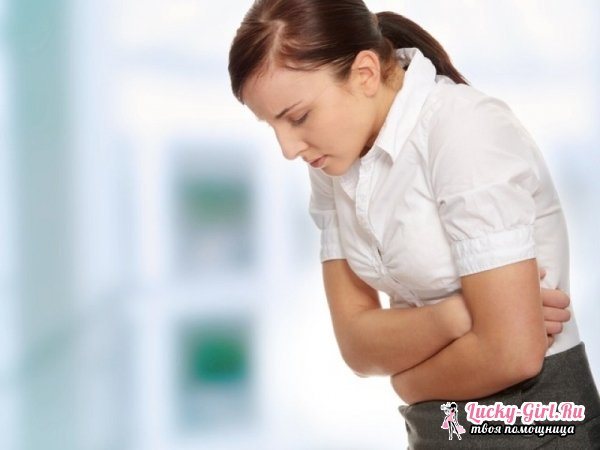
But there is also another side to the coin. During pregnancy, a woman’s body becomes very vulnerable and begins to “freak out.”
Physiological changes, hormonal changes, and weakened immunity also have an effect. And a lady in an interesting position, instead of anticipating a quick meeting with a child, has to suffer from various “surprises” of her body.
A frequent “guest” is diarrhea. Is such a disorder normal for a pregnant woman? Or is it time to urgently run to the doctor?
How to recognize diarrhea
Diarrhea in the first weeks of pregnancy indicates the body's reaction to the changes that occur with the onset of pregnancy. This does not mean that this disease does not need to be treated. During the period of diarrhea, microelements and valuable vitamins are washed out of the body of the expectant mother.
The condition and development of the baby directly depends on the nutritional status of the expectant mother. To treat diarrhea in early pregnancy, you can prepare a drink with added salt, sugar and activated charcoal.
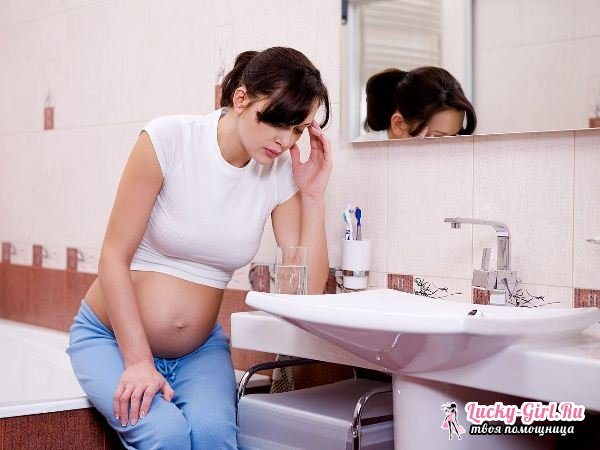
If a woman is bothered by diarrhea during pregnancy, but there is no serious reason to contact a specialist, then there are some rules that, if followed, will help maintain the pregnancy and minimize all risks associated with the baby’s health.
During diarrhea, it is important to drink more liquids containing sugar and salt, since during this period most of the minerals are washed out of the body. The best drink at such times would be still mineral water, chicken broth or “sports drinks”.
To determine the required amount of fluid for the normal functioning of body systems, you need to monitor the color and amount of urine. Light yellow color and transparency of urine are a sign of normality.
Consequences
Vomiting, in addition to discomfort, causes a lot of other unpleasant consequences for any person. For a pregnant woman, it is dangerous because the fetus itself can suffer. Dehydration is the first and obligatory consequence of the body’s vomiting reaction. Severe vomiting, which prevents food from remaining in the body, sometimes triggers the process of tissue destruction from the inside due to lack of nutrients.
When vomiting bile during pregnancy, the acids irritate the stomach, which leads to inflammation, and subsequently the development of serious diseases. It is worth stopping the vomiting as soon as possible with the help of a doctor or on your own.
Diagnostics
If symptoms occur, you should notify your obstetrician-gynecologist. You may need to consult other doctors to help establish a diagnosis and prescribe the correct treatment. A gastroenterologist will help identify gastrointestinal problems. An endocrinologist, infectious disease specialist, and oncologist will help identify pathology in other areas.
To make a diagnosis, the following tests may be necessary:
- UAC and OAM;
- Blood chemistry;
- Analysis for tumor markers;
- Ultrasound of the digestive organs;
- Fetal ultrasound;
- MRI.
As a result of the measures taken, the attending physician makes a diagnosis and prescribes the optimal treatment for a pregnant woman.
Treatment
Moderate and severe stages of symptom severity require hospitalization. Medications, especially in the first trimester of pregnancy, can harm the fetus. The use of medications is kept to a minimum. When vomiting, the doctor recommends taking sorbents, enzymes, and antiemetic drugs to alleviate the patient’s condition. Diet adherence will be required.
You can calm your stomach when you feel sick at home by taking tea with ginger, still mineral water, or a decoction of mint or rosehip.
Intestinal infection in pregnant women poses a danger to the unborn child and requires immediate treatment. For a mild form of the disease, removal of toxins using absorbent drugs will be required. Severe cases require hospital treatment. To remove toxins, the patient is given IV drips. After the examination and receipt of test results, the doctor prescribes medications.
Pancreatitis is difficult to diagnose and treat. Therapy for the disease during pregnancy does not differ from the treatment of other patients; it is aimed at relieving intoxication, eliminating pain, and eliminating inflammation. The acute form requires surgical intervention. The question of termination of pregnancy arises.
Prevention
It is impossible to avoid nausea and vomiting during pregnancy; every woman can reduce attacks to a minimum. It is enough to follow a diet, minimizing the consumption of fatty, spicy foods, and eliminating stressful situations and emotional stress.
Walking during this period of a woman’s life for 15 minutes, several times a day, will have a beneficial effect on intestinal motility.
Toxicosis in the early stages of pregnancy is not uncommon and does not pose a great danger. Symptoms can be alleviated. It is not recommended to start activities on an empty stomach - it is better to take care of breakfast in the evening, grab a handful of dried fruits, a banana, and cookies. When morning comes, you need to have a light snack without getting out of bed. You need to eat fruits. Girls with moderate nausea are better off eating baked fruits.
Regular examination by an obstetrician-gynecologist and timely testing will minimize the risk of diseases that cause nausea and vomiting of bile.



